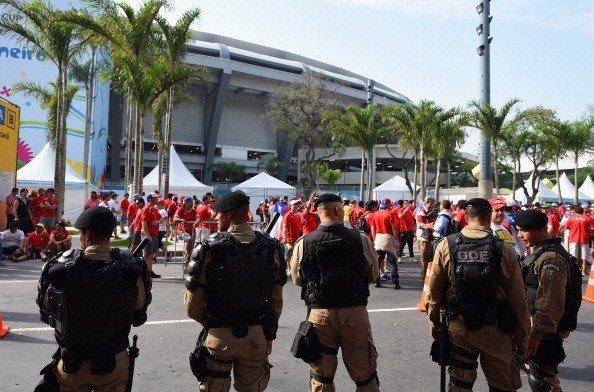![]()
จากรายงานข่าวสารการรักษาความปลอดภัยในระหว่างการแข่งขันกีฬาโอลิมปิกที่กรุงริโอ เดอจาเนโร บราซิล เมื่อ 6-7 ส.ค.59 การดูแลความสงบด้วยกำลังทหารและตำรวจประมาณ 100,000 นายพร้อมรถถัง ปืนกลอัตโนมัติ ประจำการตลอดและทุกเส้นทางสายหลักสู่สถานที่แข่งขันกีฬา ประกอบด้วย หน่วยตำรวจเคลื่อนที่เร็วด้วยจักรยานยนต์ เรือยามฝั่งของทหารเรือเฝ้าระวังและตรวจตราชายหาดโคพาคาบานา ซึ่งเป็นชายหาดที่นิยมของนักท่องเที่ยวและจะเป็นพื้นที่แข่งขันวอลเลย์บอลชายหาด ทั้งนี้ทางการบราซิลเกรงว่าจะเกิดเหตุร้ายจากการข่มขู่ของกลุ่มก่อการรา้ย
ที่มา : http://www.usatoday.com/story/sports/2016/08/06/security-forces-rio-olympic-games-rio-de-janeiro/88339014/













